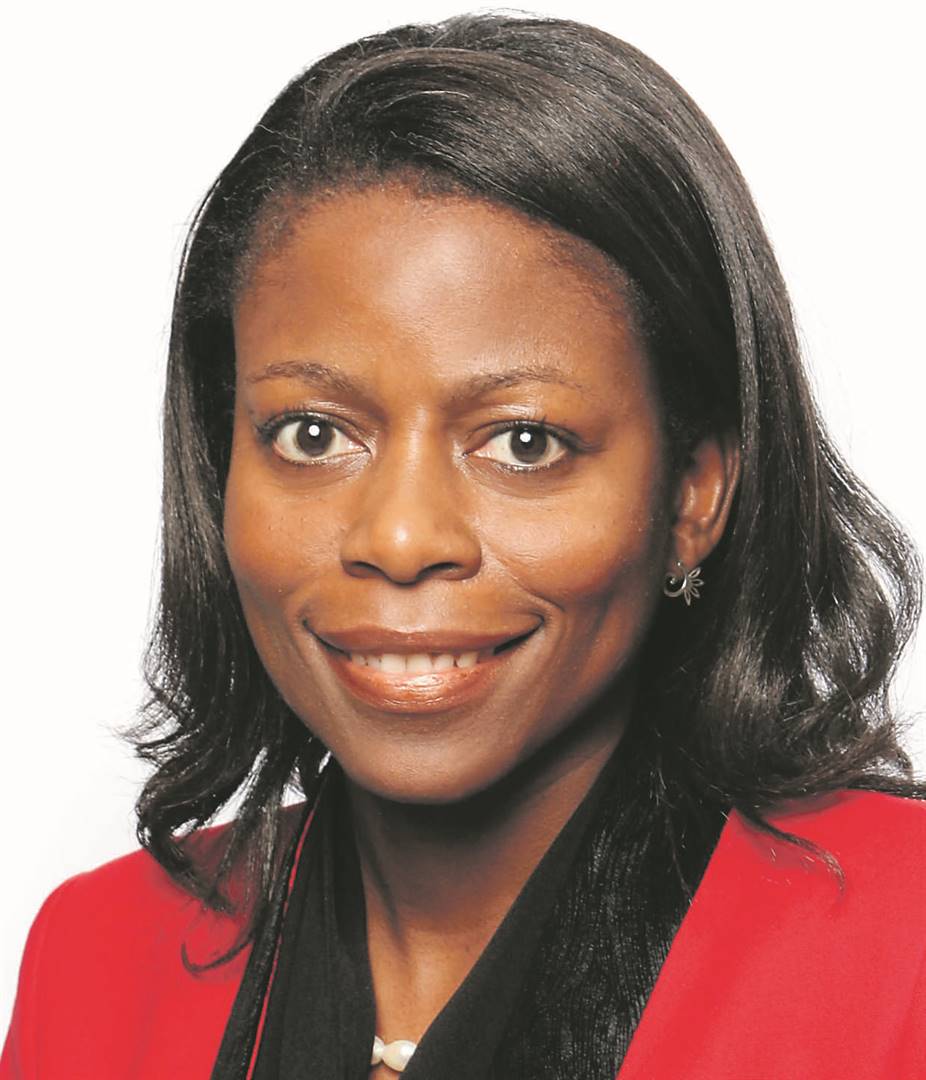The first investment conference was a spectacular success, raising R300 billion. What are you expecting this year to get closer to that R1.2 trillion target?
Building on last year’s inaugural conference with a concerted effort during the past year, we have attracted further investment commitments across a range of sectors from local and international investors. This brings us closer to the R1.2 trillion target up to 2023. A healthy pipeline of projects is emerging from the private sector. The SA Infrastructure Fund will also share its initial pipeline of projects.
You are building a pipeline of investment projects in several sectors. In which sectors would you like to see a spike and where do you feel you are tracking well in terms of your targets?
We are targeting growth in core productive sectors of mining, manufacturing and agriculture, in addition to technology, media and telecommunications, and services. Last year, we attracted a number of large pledges from diversified mining companies, many of which are based internationally, which was encouraging. This suggests that investor confidence is improving after a consultative process was undertaken to revise the Mining Charter.
We’re hoping to attract more pledges in this area because South Africa is endowed with vast mineral reserves valued at $2.5 trillion (R37 trillion), the most valuable in the world.
There are substantial opportunities not only in extracting commodities, but in adding value across key value chains such as platinum, manganese, vanadium, chrome, iron ore and steel, to name but a few.
South Africa remains an attractive market for investors in telecommunications. We are providing infrastructure, including the release of high-demand spectrum. Last year, we attracted pledges from a number of companies operating in this sector and, this year, we hope to attract more investors to this as we position the country to support growth in this important sector.
South Africa is in the process of setting up the Infrastructure Fund to leverage investments from financial institutions, multilateral development banks, asset managers and commercial banks. This will fundamentally transform government’s approach to the roll-out, building and implementation of infrastructure projects and unlock growth for investors.
Our country’s export basket has not changed much over the past two decades, while our emerging market peers have upgraded their capabilities within sectors and/or have moved on to more complex industries. We are actively pursuing investments that will help to build the country’s export capabilities. This will create productive capacity to fulfil demand in the regional and continental market.
You have been working towards opening up the environment for those who wish to invest and do business in South Africa. What interventions have had the most impact so far?
Concluding outstanding policy work in key areas was on our to-do list, and we’re making progress in key sectors such as mining, telecommunications, agriculture and energy security. We are also working on industrial policy master plans to rebuild our productive capacity in key sectors.
Apart from this, we’ve focused on cutting out the red tape and making it easier to do business in the country. These reforms are gaining traction, with South Africa moving up seven places since last year in the World Economic Forum’s annual Global Competitiveness Index to 60 out of 140 countries.
What do you see as the next most important factors that will drive up South Africa’s rank on the Global Competitiveness Index?
Earlier this year, President Cyril Ramaphosa articulated our ambition to reach the top 50 in the World Bank’s Ease of Doing Business ranking.
Since then, various workstreams have taken up the challenge to drive our performance on the factors that are considered on that list, including processes to set up a business and to access public services such as electricity. Some of the reforms that are being implemented, such as improvements to new business registration processes and property registration, will only count towards next year’s ranking. We are confident that we are on the right track.
We are not as productive as we were before the 2008 global financial crisis, when we were ranked at number 32 globally. The measures in place will help us to recover lost ground and then outpace our peers. Improving the ease of doing business will not only improve our image in the eyes of international investors, but is crucial in supporting the administrative lives of our businesses, including small businesses.
Of the investments pledged last year, do you know how many jobs might have been saved or created over the past 12 months?
The department of trade and industry has been monitoring the status of the various investment pledges made at last year’s conference and a report back will be presented at this year’s conference.
What do you feel the delegates will be most interested in getting clarity on, given the difficult trading conditions at the moment globally?
Many investors want clarity on what we’ll be doing to secure our energy supply. Government has responded with a series of interventions to deal with problems at Eskom. The strategic unbundling of Eskom under one holding company, which was announced earlier this year, will bring transparency and efficiency to the utility’s operations.
The Integrated Resource Plan provides a road map for planned energy generation and the evolution of South Africa’s energy mix over the period to 2050, with opportunities for independent power producers and renewable energy forming part of our energy security plan. A comprehensive road map for Eskom will be released by government.
What three reasons would you give a potential investor to invest in South Africa?
Government supports investors through various incentives and is committed to creating an environment for investments to flourish through various efforts to improve the ease of doing business.
Investors are supported by world-class infrastructure; innovation, research and development capabilities; and an established manufacturing base. Our sound regulatory framework protects investors, and our commercial and legal practices are comparable with key investment markets.
To invest in South Africa is to occupy the front row in the development of a young continent with significant growth prospects. Continental integration will boost intra-Africa trade and unlock industrial development.
To date, 28 countries have ratified the African Continental Free Trade Area agreement.
Of all the trade that involves African countries, less than 20% is with other African countries. And most of this trade takes place within the Southern African Development Community. This is compared with 70% for trade among EU countries, and more than 50% between Asian economies.
This agreement will not only integrate the continental market for goods and services, it will also accelerate investment, drive the development of multicountry infrastructure projects and ease regulatory fragmentation in Africa. South Africa plays an important role in shaping and driving the continental economy.
Why is a second investment conference so crucial?
The president recognises the importance of investment to reignite South Africa’s economic growth. This year’s conference is a key milestone in the investment mobilisation drive. The conference is the ideal platform to bring together business and political leaders to explore the myriad opportunities for growth and investment across our dynamic economy.
- Mining company Anglo American – R71.64 billion by 2022 on maintaining and expanding its mines in South Africa
- R4.6 billionNaspers, Africa’s largest media company, in new and existing technology companies
- Sappi, the world’s biggest producer of dissolving wood pulp – R7.7 billion on the upgrade and expansion of its Saiccor Mill Packaging company
- Mondi – R8 billion in expanding its capacity
- R2.4 billion Bushveld Minerals – expanding its capacity to produce and process vanadium over the next three years
- Telecommunications company Rain Telecom – R2 billion on a 5G high-speed network
- R663 million Nestle SA – to expand in the food industry
- Procter & Gamble – R300 million for a new plant
- McDonald’s – R3 billion on expansion in the next five years
- R3.3 billion Aspen Pharmacare – for building a new pharmaceutical plant
- Vodacom – R49 billion in telecommunications networks in the next five years
- R1 billion MultiChoice – on local content and technology
- South African vehicle manufacturers, including BMW, Nissan Motor Co, Ford Motor Co, Toyota Corp, Volkswagen and Daimler’s Mercedes-Benz unit pledged to collectively invest R39 billion in new capacity in the next five years
- R21.4 billion
- Vedanta Resources – in a zinc mine project and processing plant
- Ivanhoe Mines, owned by a Japanese consortium led by Japan’s Itochu Corp – R4.5 billion in the Ivanplats platinum project
- R1.5 billion Mara Group, a Dubai-based company – R1.5 billion for establishing a plant to produce smartphones in SA
- Sumitomo Rubber – R970 million to expand a tyre manufacturing plant
- R9.6 billion Acwa Power International – in solar power




 Publications
Publications
 Partners
Partners










